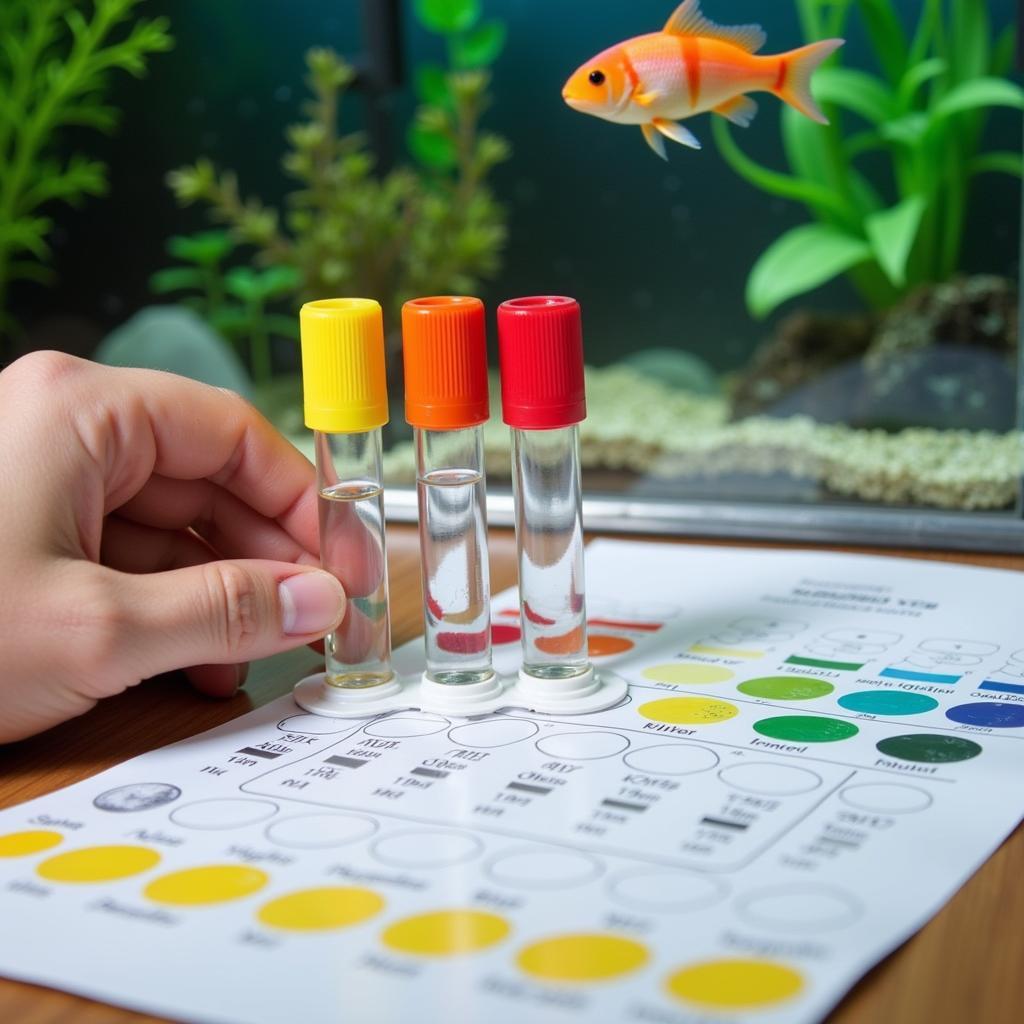Understanding Dead Angelfish: Causes, Prevention, and What to Do
November 12, 2024A Dead Angelfish in your aquarium can be a disheartening sight. This article explores the common causes of dead angelfish, preventative measures you can take, and steps to follow when you find a dead angelfish. We’ll cover everything from water parameters and diseases to stress and improper tank mates, providing a comprehensive guide to help you maintain a healthy angelfish environment.
Common Causes of Dead Angelfish
Several factors can contribute to the death of an angelfish. Understanding these causes is crucial for preventing future losses and ensuring the well-being of your other aquarium inhabitants. Let’s delve into some of the most prevalent reasons:
- Poor Water Quality: Angelfish are sensitive to changes in water parameters. Ammonia, nitrite, and nitrate levels that are too high can be toxic. Incorrect pH and temperature can also stress the fish, weakening their immune systems and making them susceptible to disease.
- Disease: Various diseases can affect angelfish, ranging from parasitic infections like ich and velvet to bacterial infections. Identifying and treating these diseases promptly is essential for preventing fatalities.
- Stress: Stress can significantly impact an angelfish’s health. Overcrowding, aggressive tank mates, and sudden changes in the aquarium environment can all contribute to stress, making the fish more vulnerable to illness and death.
- Improper Diet: A balanced and nutritious diet is crucial for angelfish health. Feeding them an inappropriate diet or not providing enough food can weaken their immune system and lead to health problems.
- Old Age: Like all living creatures, angelfish have a natural lifespan. If your angelfish has lived a long and healthy life, its death may simply be due to old age.
Preventing Angelfish Deaths
Taking proactive steps can significantly reduce the risk of angelfish deaths. Here are some key preventative measures:
- Maintain Optimal Water Quality: Regularly test your water parameters and perform partial water changes to keep ammonia, nitrite, and nitrate levels low. Ensure the pH and temperature are within the appropriate range for angelfish.
- Quarantine New Fish: Before introducing new fish to your main tank, quarantine them for a few weeks to observe for any signs of illness. This prevents the spread of disease to your existing fish.
- Choose Compatible Tank Mates: Avoid aggressive or overly competitive tank mates that could stress your angelfish. Research compatible species before adding any new fish to your aquarium.
- Provide a Balanced Diet: Feed your angelfish a varied diet of high-quality flakes, pellets, and occasional live or frozen foods. Ensure they are receiving the necessary nutrients for optimal health.
- Minimize Stress: Create a stable and peaceful environment for your angelfish. Avoid sudden changes in water parameters, lighting, or decor. Provide plenty of hiding places and plants to reduce stress.
What to Do if You Find a Dead Angelfish
Discovering a dead angelfish can be upsetting, but it’s important to take appropriate action.
- Remove the Dead Fish: Promptly remove the dead angelfish from the tank to prevent the spread of disease and maintain water quality.
- Test Your Water Parameters: Test your water for ammonia, nitrite, nitrate, pH, and temperature to identify any potential issues.
- Observe Your Other Fish: Carefully monitor your remaining fish for any signs of illness or unusual behavior.
- Consider a Partial Water Change: If you suspect water quality issues, perform a partial water change to improve the environment.
- Seek Professional Advice: If you are unsure about the cause of death or if other fish are showing signs of illness, consult a veterinarian or experienced aquarist.
 Testing Aquarium Water Parameters
Testing Aquarium Water Parameters
Conclusion
Dealing with a dead angelfish can be a learning experience. By understanding the common causes of death and implementing preventative measures, you can create a healthy and thriving environment for your angelfish. Regular monitoring, proper nutrition, and a stress-free environment are key to ensuring the long-term health and well-being of your aquatic companions. Addressing dead angelfish effectively helps protect the remaining inhabitants and maintain a vibrant aquarium ecosystem.
FAQ
- How long do angelfish typically live?
- What are the signs of a sick angelfish?
- Can I bury a dead angelfish in my garden?
- How often should I change the water in my angelfish tank?
- What are the best tank mates for angelfish?
- How can I tell if my angelfish is stressed?
- What should I do if my other fish are acting strangely after one died?
You can find more information on our website about fish diseases, water parameters, and aquarium maintenance. Explore our articles on “Common Angelfish Diseases” and “Setting up the Perfect Angelfish Aquarium.”
When you need support, please contact us by Phone: 0915117113, Email: [email protected] Or visit us at: Group 3, Binh An Hamlet, Phu Thuong, Vietnam, Binh Phuoc 830000, Vietnam. We have a 24/7 customer support team.